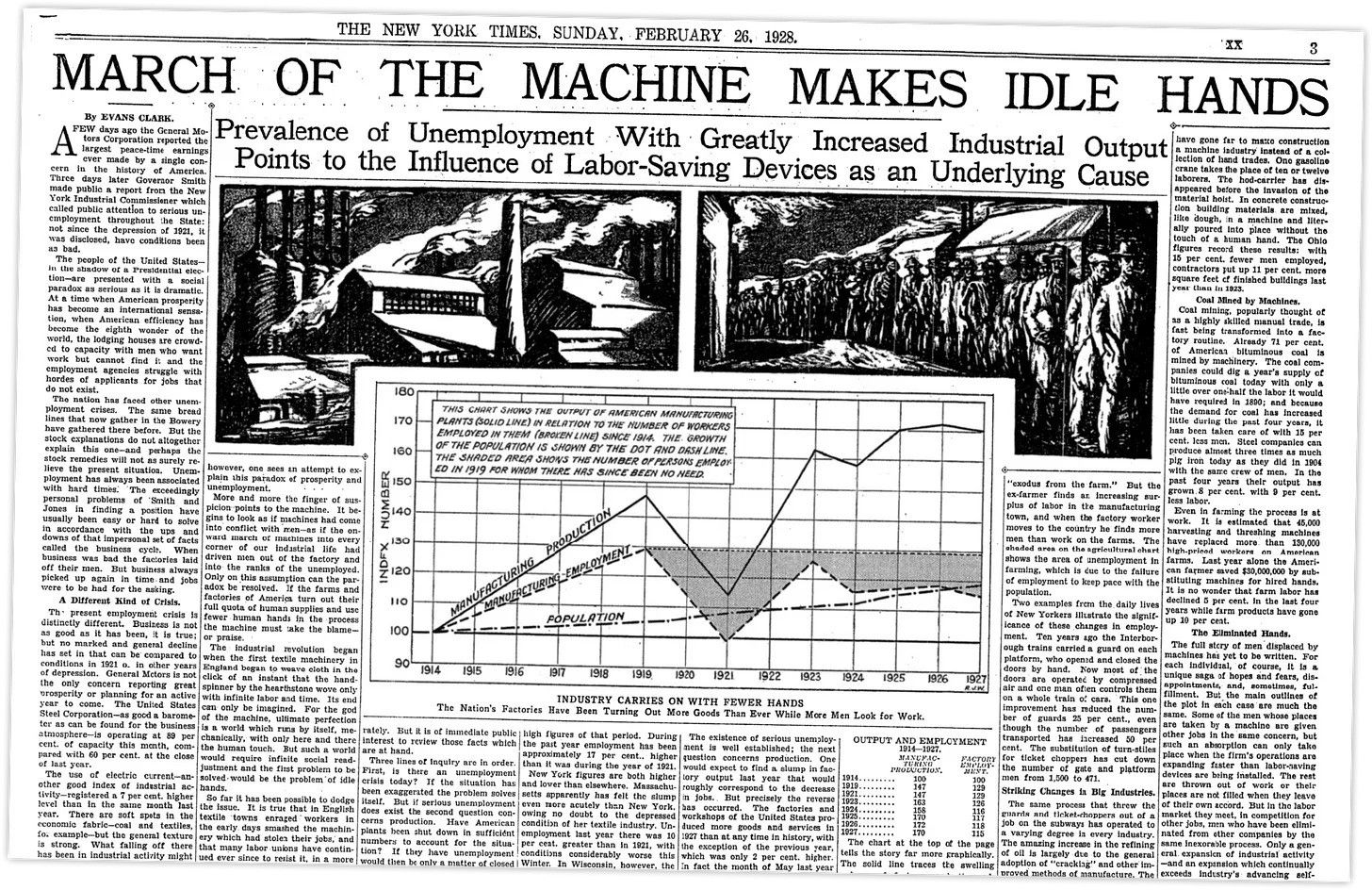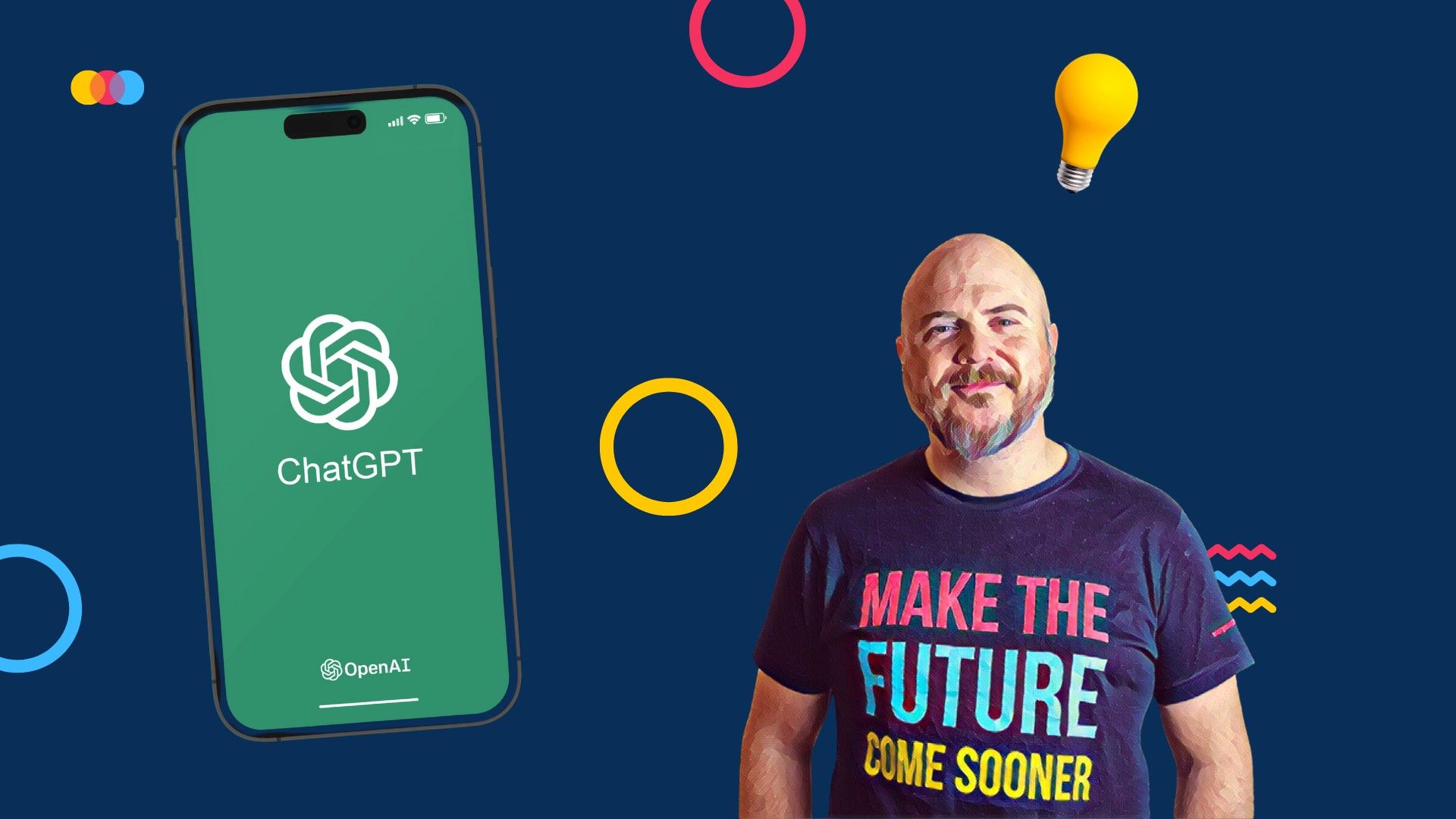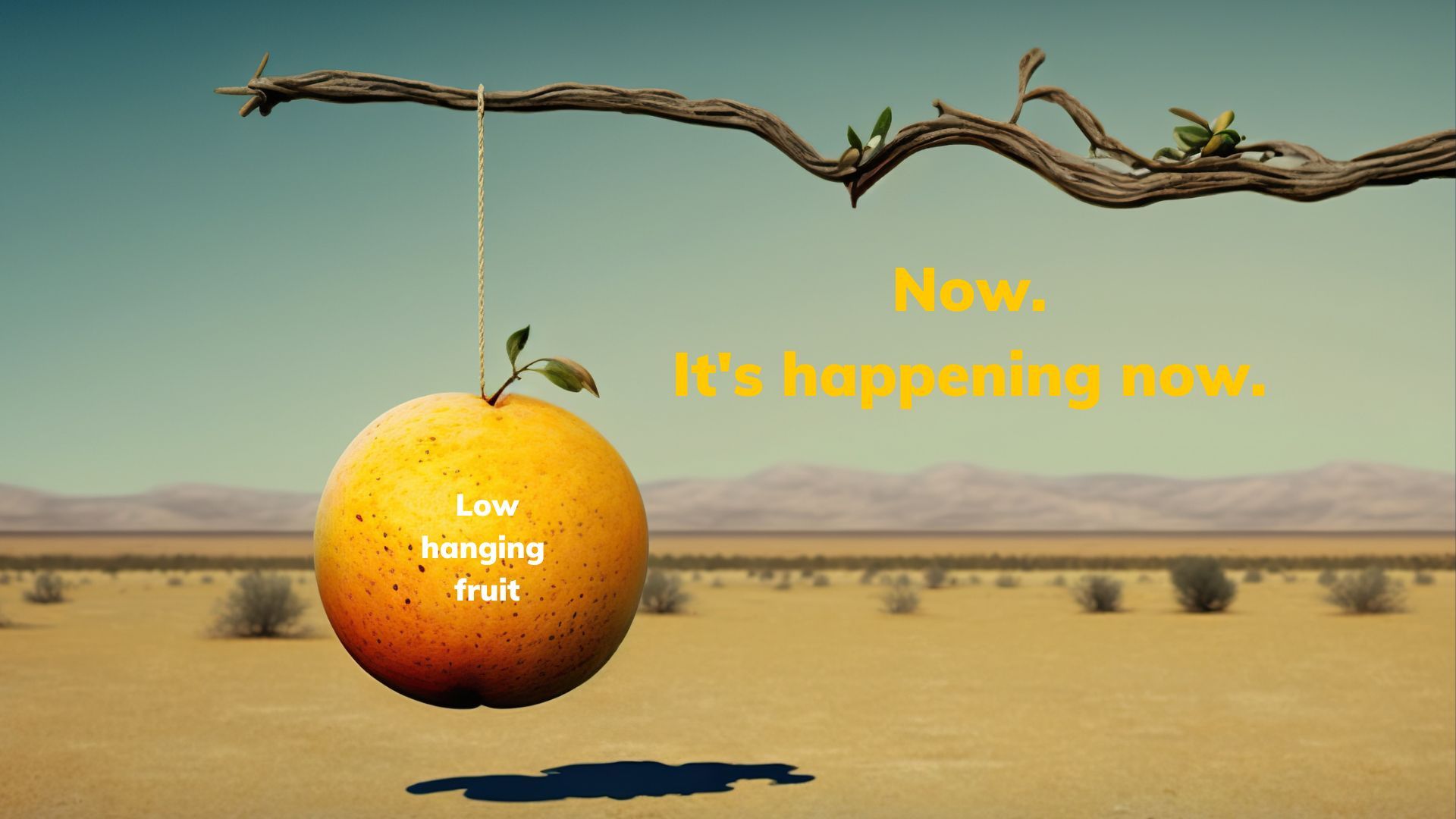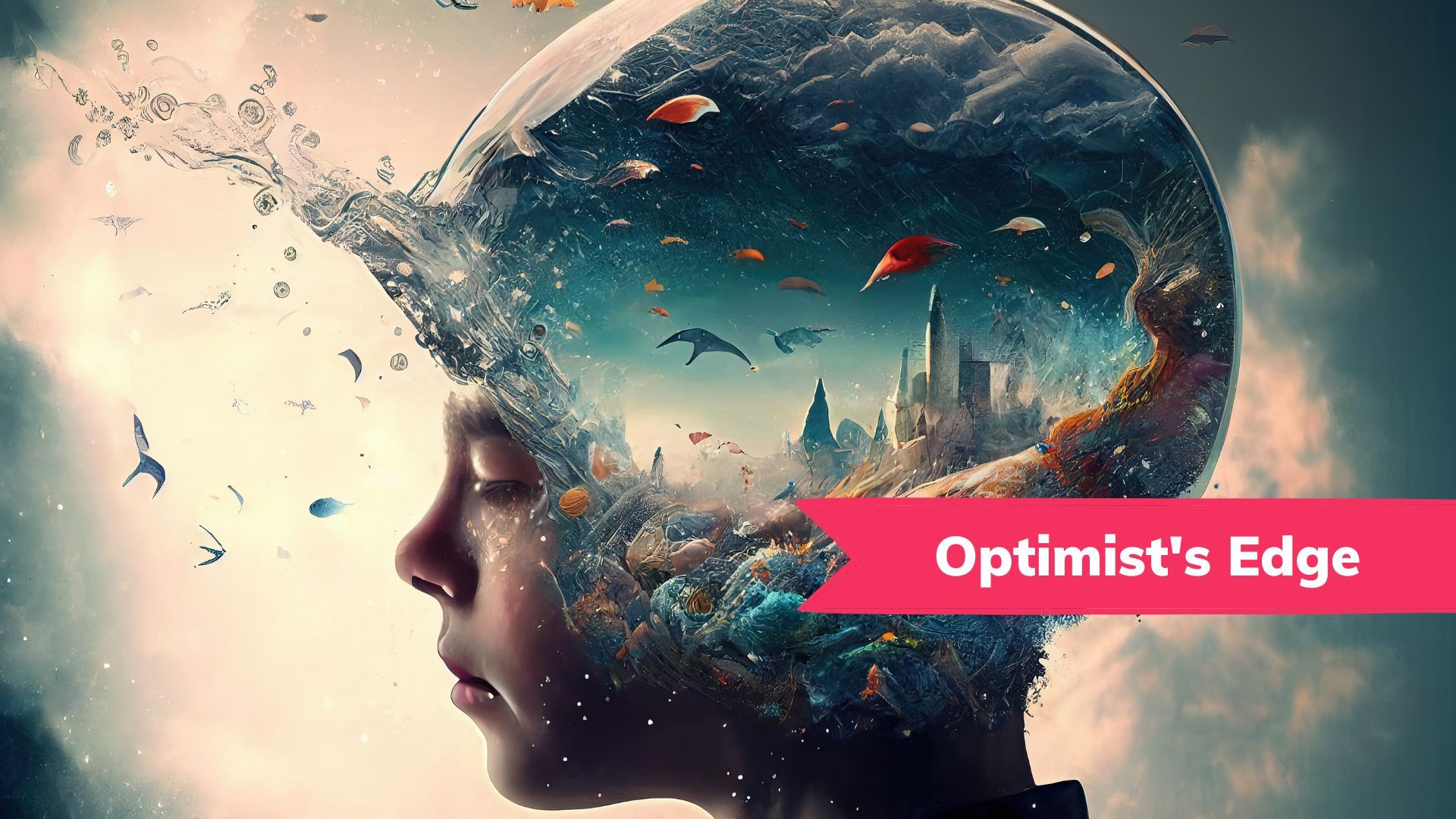
💡 Optimist's Edge: The centaur's edge (how amateurs beat experts)
💡 Optimist's Edge: By becoming really good at using AI tools, amateurs can perform better than experts.
Share this story!
📉 What people think
With the launch of ChatGPT, a wave of "AI is going to take your job" articles emerged. This is nothing new. The invaluable source for a fact-based optimist, the Pessimists Archive, shows a century of fear about "robots/machines/computers taking our jobs".

However, as mentioned, ChatGPT, Midjourney, and the other new AI tools have unleashed a tidal wave of speculation about how many jobs will disappear (300 million, BBC), which jobs are AI-proof ("thought leadership", Entrepreneur), how to keep your job (by becoming robot-like, The Atlantic), and how concerned people are (24 percent think their job could soon be obsolete, CNBC).
On the site Will Robots Take My Job, you can check how doomed you are.
📈 Here are the facts
In 1997, the world chess champion, Garry Kasparov, lost to IBM's DeepBlue in a much-publicized game. Kasparov became angry, accused IBM of cheating (which he later retracted), but he did not become a luddite. Instead, he popularized a new type of chess.
In advanced chess, the human player is allowed to use and play with a chess computer.
In such a competition in 2005, something fascinating happened. The competitors consisted of both grandmasters who used the most advanced chess computers, and amateurs with regular personal computers.
The outcome should be a given. But it was the amateurs who won. Not because they were better chess players - they were clearly inferior. Not because they had better computers - their computers were clearly inferior.
How could they win then?
They were better at using the computers.
Time and again, Kasparov observed this phenomenon. Eventually, he formulated it like this:
"I have come to the conclusion that a weak human player plus machine plus a better process is superior, not just to a very powerful machine, but most remarkably, a strong human player plus machine plus an inferior process."
This form of chess has come to be called centaur chess, after the mythological creatures that are half-human, half-horse.
Just chess?
This is applicable in many areas. But since AI tools are so new, it's hard to know how big an impact they will have.
One area where AI has begun to be used to some extent, and many believe it has great potential, is radiology. Doctors who use AI to become better at determining whether the images show tumors.
A new research paper investigated this and found that, on average, there was no positive effect from doctors using AI in their assessment.
"We find that AI assistance does not improve the performance of our participants on average, even though the AI predictions are more accurate than the majority of radiologists, and that radiologists respond to this assistance."
This seems to contradict our thesis. However...
"However, the average treatment effects mask important heterogeneity - AI assistance improves performance for a large set of cases, but also decreases performance in many instances."
The really interesting part is revealed in the question why?
Because the doctors were bad at using the AI correctly. They were weak at knowing when to listen to the AI's assessment and when not to.
The doctors were simply bad at the process, at using the AI tool. Just like the grandmasters in chess weren't as good at using the chess computers as the amateurs who won the competition. The doctors who used the AI correctly performed better with AI than without.
💡 Optimist's Edge
💡 Optimist's Edge: By becoming really good at using AI tools, amateurs can perform better than experts.
For a couple of million years, human success has consisted of inventing and using new tools. Those who did not use these tools have fallen behind. In today's society, AI will naturally take over tasks and make some jobs redundant, as tools and machines have always done.
But those who learn to handle the new tools need not worry. Their jobs are safer, but if they are threatened, it is these people who move forward. Who become this generation's leaders, who get a boost in their career, who see and take the new opportunities before everyone else.
👇 How to get the Optimist's Edge
Test the AI tools. It is easier than you think, as they are controlled by our normal language. On YouTube, there are plenty of guides and channels dedicated to different AI tools.
Writing and thinking
Here is my simple guide to getting started with ChatGPT:

Guide to Bard (Google's ChatGPT)
Images
Guide on how to create images with Midjourney.
Keep up with the development
There's a lot going on in the generative AI area right now. The Rundown is a great daily, free, newsletter that gives you an overview of the latest AI development.
No real experts yet
There is a lot of free help online that you can use to become really good. But everything is so new that there are no real, established experts.
If you want, the field is open. You can create your niche and become the best in the world at it.
But even if you don't have such a high level of ambition, the time you invest in learning and becoming good at using AI tools will pay off. As we wrote earlier:
Generative AI unleashes our creativity and gives us new ways to create. But almost none of it is done. There are dozens of low-hanging fruits. Reach out and pick one of them.


Mathias Sundin
The Angry Optimist
By becoming a premium supporter, you help in the creation and sharing of fact-based optimistic news all over the world.



